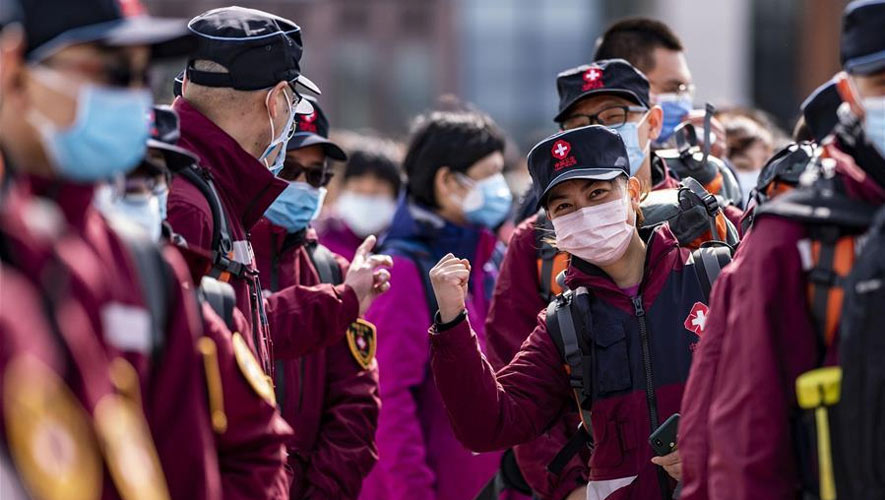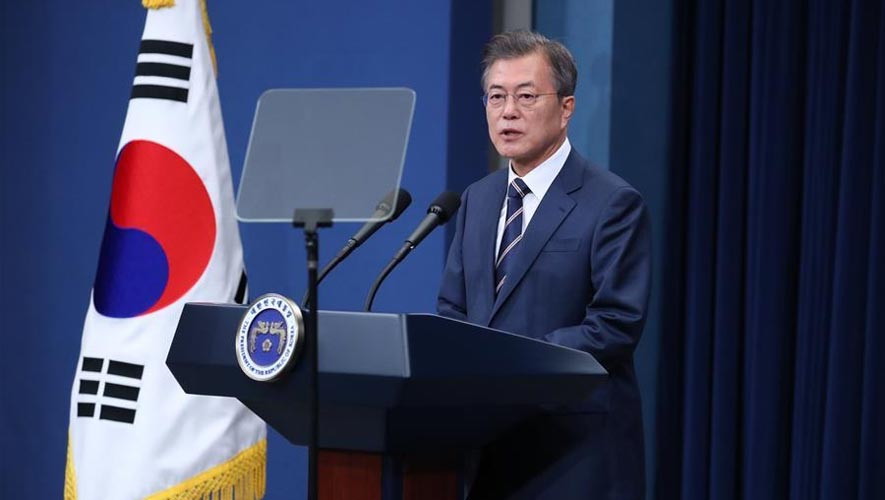The British have had their world order in the 19th century, after which the Americans took over the century. And now it is the Chinese’s turn.
For the latest Cambodian Business news, visit Khmer Times Business
Without doubt President Trump woke the other world players up, especially European countries in dealing with China. This in itself, is not a moment too soon and seems that Europe is finally out of its strategic hibernation.
Under Trump’s pressure, Europe has realised what actually is going on: China follows a strict policy that places only its own interest first. And that “China first” approach could come at the expense of Europe as there is no question of a win-win situation as the Chinese always claim.
Western countries have long lived in a kind of wishful thinking that China in the long-term will be just like them. That was also the idea behind the admission of China into the World Trade Organisation in 2001, when it sounded that trade deficits would disappear and that China would become a responsible partner.
Well, that’s not what happened. China continued its dumping practices by giving subsidies to state-owned enterprises and violated intellectual property rights.
Till now, China has benefitted from the “geopolitical amateurism” of Europe and still the EU member states often hold their own agenda. But the EU should stand as the No 1 powerful bloc to be successful in its negotiations with China and the US.
The most striking example is of course Italy, as the first country of the G7 that agreed with the Belt and Road Initiative. That project began as an attempt to secure Chinese exports but evolved quickly to a mechanism by which China pursues economic and political influence.
Czech President Milos Zeman described his country as an “unsinkable aircraft carrier ever for China in Europe”. Some leaders, including Viktor Orbán (Hungarian Prime Minister), are in full admiration of China’s autocratic governance. So the EU has to overcome a lot of issues internally to become a strong bloc.
In full commotion about Chinese technology giant Huawei Technologies Co Ltd, the excesses of the trade war and the controversy over the new Silk Road, European and Chinese leaders started their EU-China summit in Brussels on April 9. The Europeans had a 10-point plan in hand and they emphasised the need for equal relationship, in which European companies enjoy the same opportunities in the Chinese market and vice versa.
The message was clear: Europe is no longer sitting and waiting for what is coming and that is exactly the key point why President Trump started the US-China trade war.
During the summit, Premier Li Keqiang said, “We respect EU’s laws and standards. We all need to increase trade and connect our economies.”
In a joint statement, the two sides lent support to EU initiatives including the EU-China Comprehensive Investment Agreement, which Brussels and Beijing committed to complete before the end of 2020, in time for the next EU-China summit.It also emphasised the need for a “level playing field”, a key demand by the 16+1 countries in their negotiations with China.
The statement included a list of nearly 40 deals signed between China and partner countries covering areas such as agricultural exports, e-commerce, finance and technology cooperation. It also contained references to new principles that did not appear in last year’s statement, including the “three pillars of the United Nations”, which are peace and security, human rights, and development.
The EU has been more assertive towards China, viewing Beijing as its “systemic rival”. China and the EU narrowly agreed to sign a joint statement on Tuesday’s summit after major EU states threatened not to endorse the document if Beijing did not include promises to improve access to Chinese markets.
When the statement was approved by both sides, China agreed to sign a long-overdue investment deal with the EU “by the end of next year or earlier”. The parties also agreed to create a mechanism for monitoring the opening of each other’s markets.
The final statement also made a reference to addressing industrial subsidies, which EU Council President Donald Tusk described as a “breakthrough”.
Therefore, one can see how smart the Chinese move is in reaching its “New World Order”. As Henry Kissinger once said, China will never opt for an “all-or-nothing”strategy. It is reaching its goals gradually. An excellent example of this step-by-step policy is what can be observed in South China Sea. Each step might not seem worthwhile for its opponents to start a battle but when all the small steps are made, China would have reached the goal in a smart way and the result is that the Chinese have almost entirely claimed the South China Sea region. The Permanent Court of Arbitration in The Hague ruled in 2016 that Beijing could not make a claim on that region but the Chinese have never accepted that ruling.
Benjamin is a business consultant based in China




